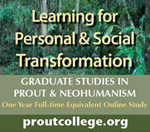Dissident and diverse viewpoints in modern China are featured in a new book of essays reviewed for New Renaissance by Rene Wadlow.
Sharon Hom and Stacy Mosher (Eds).
Challenging China: Struggle and Hope in an Era of Change
(New York: The New Press, 2007, 313pp.)
Reviewed by Rene Wadlow
But, the results of the earthquake are being evaluated; Chinese voices are being raised concerning the wide destruction of school buildings. Schools have fallen, often killing the children who were attending classes when the earthquake struck, while other buildings continued standing. Parents have started asking if the schools had been built with inferior material, if the builders were not corrupt, why parents' concerns about the quality of the school buildings had not been taken up earlier.
Such voices are being widely expressed, and there are echoes in the Chinese media- less and less under the control of the Party's Propaganda Department. China is both one and many. Diversity of views is increasingly evident. One expression of diversity is this useful collection of essays.
This book is a wide-ranging collection of those who will not be silenced. Some are in exile with freedom to analyse but cut from some of the day-to-day trends. Others living in China have faced persecution, prosecution, harassment or detentions. Others are able to write more indirectly as seen in some of the poems presented.
China, for its economic modernization, needs creativity and individuals who are willing to do things in new ways. But it is difficult to limit the creative individual only to selling goods in new ways. The creative individual also thinks about the way power is exercised, the way work is organized, the way that corruption wins out over competence and professionalism.
More and more creative people are banding together, some into legally-recognized Non-Governmental Organizations (NGOs), many others into informal networks. Many of the NGOs are related to the environmental crises. The government recognized the need for ecologically-sound development but is also fearful of the protests of ecology groups who protest the “get-rich-quick” economic projects often carried out.
The rural-to-urban migration is a reflection of the growing poverty gap and a sign of growing social unrest. As Hu Jia, a human rights activist, wrote in a study of rural people with AIDS “In the past few days, I have been making an accurate record of all that the villagers tell me. They are so full of frustration that they cannot hold anything back. How can our people flourish under such officials? How will our country advance?”
Lacking a genuine voice in public policy, disadvantaged groups are increasingly resorting to public protest against the more oppressive aspects of China’s economic and political development. There have been large protests against the forced relocation of villages for dams or housing developments. China’s Ministry of Public Security announced a sharp rise in the number of “mass incidents” which are demonstrations and protests that involved more than 100 people. As the editors note “How one group chooses to express itself creates ripple effects in society that then affect how the government deals with other groups and individuals. The Chinese authorities previously reacted to uprisings with harsh suppression across the board, but the failure of such measures to stem protests, and indications that they actually inflame public discontent, have led the authorities to respond more recently with a greater range of approaches.”
As Liu Xiaobo writes in The Rise of Civil Society in China “Because the masses lack any legal outlet to express their reasonable demands regarding rights and corruption, and receive no direct response from the authorities, they have increasingly resorted to demonstrations and protests. This has given rise to a new breed of dissidents and ‘people’s champions’ bearing the labels of ‘peasants’ heroes’ and ‘martyrs of faith’. They are not a product of political opposition movements, but rather of the people’s struggle to protect their own rights, and as such they have deep grassroots support.”
In addition to the articles presenting general analysis of social movements, there are a number of moving interviews by relatives of those executed or living in exile. In keeping with the idea that “the personal is political” we see through these firsthand accounts some of the sunshine and shadows of Chinese life. The book ends with a useful guide to websites in Chinese and English for those who wish to continue their analysis of fast-changing China.
Rene Wadlow is the Representative to the United Nations, Geneva, of the Association of World Citizens and the editor of the journal of world politics www.transnational-perspectives.org









